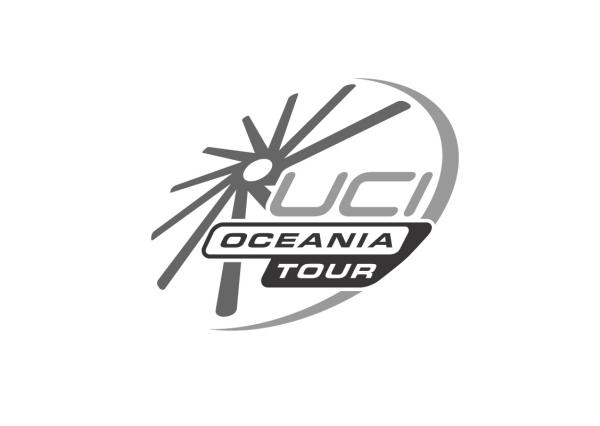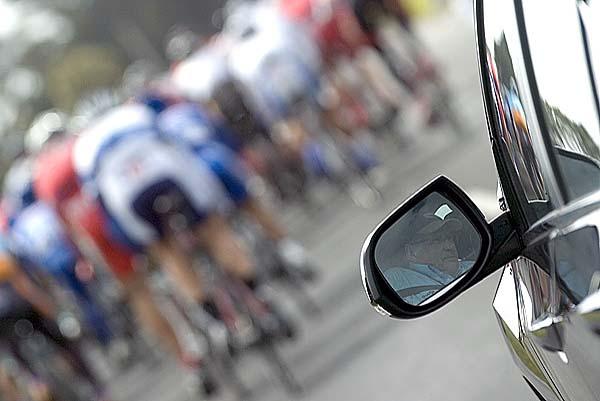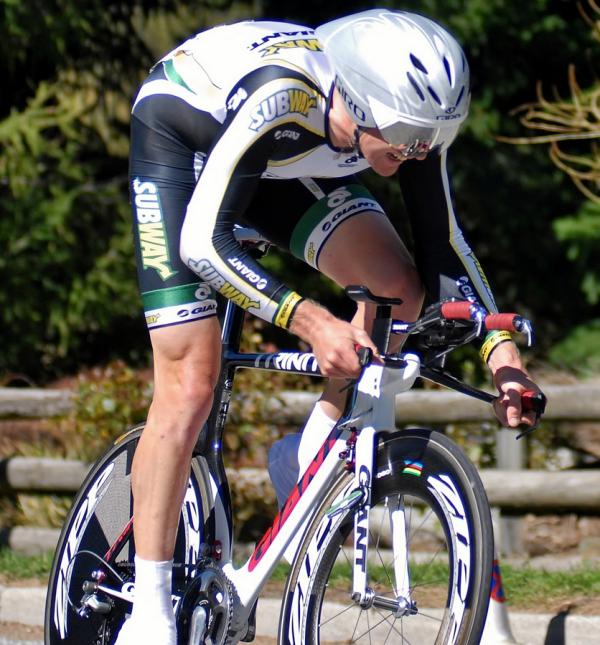Oceania Tour cannot survive without UCI reform
The "Eurocentric view" doesn't work says Secretary General Sycamore
The latest race content, interviews, features, reviews and expert buying guides, direct to your inbox!
You are now subscribed
Your newsletter sign-up was successful




Unless the UCI agrees to make special considerations for the Oceania region, the calendar will continue to erode says Oceania Secretary General Graham Sycamore. The Oceania Confederation has come under scrutiny for watching the calendar disappear but according to Sycamore it's a fault of the UCI refusing to present the region's race promoters with necessary dispensations that encourage them to apply for UCI status.
Regulations, costs, fewer teams and members combined with logistical issues have seen race organisers drop the UCI classification over the past six years. And it won't improve unless the UCI implement change, according to Sycamore.
"The registration [of races] goes through the Confederation. It's fair to say the Australian, New Zealand and Oceania confederations have been at odds with the UCI for six or seven years now over its regulations for events on the calendar," Sycamore told Cyclingnews.
The Oceania calendar was once a busy four-month block of racing that began with the Herald Sun Tour in October and was followed up with Melbourne to Warrnambool, The Powernet Tour of Southland, Oceania Championships - both in New Zealand toward the end of 2005 - and then returning to Australia for Tour Down Under and finally the Trust House Cycle Classic back in New Zealand at the end of January 2006.
Since 2006 the number of UCI-registered events has continued to drop, averaging about one a year. The Tour Down Under upgraded to a WorldTour event in 2008 however no other event has since grown - at least in terms of UCI classification. Warrnambool dropped its 2.2 status and became a National Road Series event for 2009 onwards while the Jayco Herald Sun Tour has only recently been reinstated for 2013 as a national event.
The 2012 season had just one sanctioned event, the New Zealand Cycle Classic and according to Sycamore, even that race teeters on the line of meeting all the race regulations. With the exception of the Oceania championships, there isn't much to offer the Continental teams of Australia and New Zealand in terms of exposing its riders to bigger teams overseas.
For riders not on a Continental team it's extremely difficult to progress when they have few options for racing outside of their respective NRS series'. The Secretary General says the UCI should make allowances for riders who are often talented but do not ride full-time for a specific team. In addition, the club teams that exist in Europe with a heavy race focus are not so common in Australia and New Zealand.
The latest race content, interviews, features, reviews and expert buying guides, direct to your inbox!
"We have been trying to get the UCI to give a dispensation for these Oceania events just for a certain time of the year; to allow mixed teams and things like that but they won't budge on it. So, the events have all become national calendar events.
"It's this Eurocentric view. On the one hand the UCI is saying they are 'trying to globalise the sport' and on the other they are saying 'if you don't do it the European way you can't do it'."
Regional and club teams are permitted in 1.2 and 2.2 races which according to Cycling Australia's road programme coordinator Sean Muir would mean NRS teams would be eligible to compete along with traditional club teams. Composing a team for a single UCI race however, would not be permitted and this must change according to Sycamore.
"Simple things they did for Africa was to allow mixed teams," he suggested. "They won't allow that anywhere else and that has helped develop the sport. Because we don't have a lot of regular full-time teams, the teams are often put together for an event and in the UCI's view that's a mixed team. They are strictly not allowed."
It's difficult to attract the interest of overseas teams without a UCI category attached to the race but with the current regulations preventing mixed teams from competing, reversing the calendar's trend is proving more difficult that the Confederation expected. Changes should have been implemented years ago but the UCI has done little to help the geographically exposed Oceania region says Sycamore.
"The UCI said about four or five years ago: 'we can't do anything next year but we might be able to offer some considerations the following year'. But they haven't done a damn thing," he told Cyclingnews.
"They have seen the calendar eroded and the number of teams. We understand the situation and we are just stuck with it."
One of the suggestions has been to merge the Oceania Tour with the Asian circuit and while this appears to still be a number of years away, it could provide the region with the necessary races to promote more teams taking out Continental licenses and attracting bigger sponsors.
"The whole situation is different in Oceania," said Sycamore. "We don't have all the teams, we don't have all the riders, it's very expensive. Even just to get from Australia to New Zealand it's almost more expensive than to get around Europe. These are the logistical problems we have been facing and getting nowhere fast... but we live in hope.
"The UCI said a couple of years ago that if the Oceania calendar doesn't have more events then it will merge will Asia. That could be a good thing, I know there's been some discussions. It won't happen next year but it may happen in 2014. It would open up more of the Asian events to Oceania riders."
